
Kampong Ayer: The Venice of the East
Kampong Ayer, nestled in the heart of Bandar Seri Begawan, is an enchanting water village with a rich history spanning over a millennium. Known as the 'Venice of the East,' it offers a unique glimpse into the traditional lifestyle of Brunei's riverine communities. The village is a maze of wooden walkways and stilt houses, all interconnected by a network of canals and bridges, providing a fascinating contrast to the modern cityscape nearby. Visitors can explore Kampong Ayer's vibrant culture and history through its well-maintained museums and galleries, such as the Kampong Ayer Cultural and Tourism Gallery. This museum provides insights into the village's past, showcasing artifacts and exhibits that chronicle the evolution of life on the river. The village is also home to several mosques, schools, and markets, ensuring a comprehensive cultural experience. A boat ride along the Brunei River is an essential part of any visit to Kampong Ayer. These water taxis provide an excellent opportunity to observe daily life in the village, from children playing to fishermen at work. Don't miss the chance to interact with the friendly locals, who are always eager to share stories and traditions with visitors. Kampong Ayer is not just a tourist destination; it's a living, breathing community that offers an authentic taste of Brunei's heritage.
Local tips in Kampong Ayer
- Visit early in the morning to experience the village coming to life and to avoid the midday heat.
- Wear comfortable shoes suitable for walking on wooden walkways and bring a hat or sunscreen for protection.
- Opt for a guided boat tour to gain deeper insights into the village's history and daily life.
- Respect local customs and dress modestly when visiting mosques or interacting with the residents.
- Bring a camera to capture the picturesque scenery and the unique architecture of stilt houses.
Kampong Ayer: The Venice of the East
Kampong Ayer, nestled in the heart of Bandar Seri Begawan, is an enchanting water village with a rich history spanning over a millennium. Known as the 'Venice of the East,' it offers a unique glimpse into the traditional lifestyle of Brunei's riverine communities. The village is a maze of wooden walkways and stilt houses, all interconnected by a network of canals and bridges, providing a fascinating contrast to the modern cityscape nearby. Visitors can explore Kampong Ayer's vibrant culture and history through its well-maintained museums and galleries, such as the Kampong Ayer Cultural and Tourism Gallery. This museum provides insights into the village's past, showcasing artifacts and exhibits that chronicle the evolution of life on the river. The village is also home to several mosques, schools, and markets, ensuring a comprehensive cultural experience. A boat ride along the Brunei River is an essential part of any visit to Kampong Ayer. These water taxis provide an excellent opportunity to observe daily life in the village, from children playing to fishermen at work. Don't miss the chance to interact with the friendly locals, who are always eager to share stories and traditions with visitors. Kampong Ayer is not just a tourist destination; it's a living, breathing community that offers an authentic taste of Brunei's heritage.
Iconic landmarks you can’t miss
Taman Mahkota Jubli Emas
Discover the tranquility of Taman Mahkota Jubli Emas, a stunning park in Bandar Seri Begawan, perfect for relaxation, picnics, and scenic strolls amid beautiful landscapes.
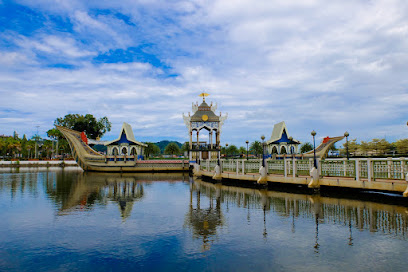
Brunei Waterfront
Enjoy a relaxing stroll along the Brunei River, with stunning views of Kampong Ayer and the city skyline.
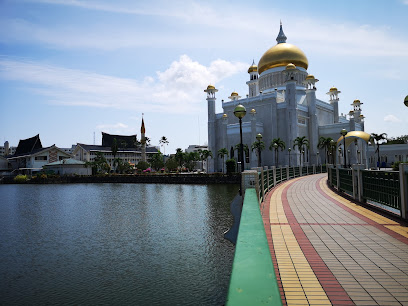
Kampong Ayer Cultural & Tourism Gallery
Discover the rich cultural heritage of Brunei's water village at the Kampong Ayer Cultural & Tourism Gallery, a unique exhibition space in Bandar Seri Begawan.
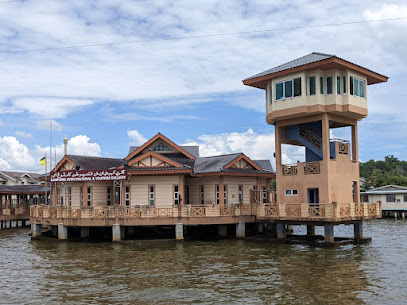
Water Village Settlement (Kampong Ayer)
Discover the captivating Water Village Settlement of Kampong Ayer, a unique stilted community in Brunei that highlights traditional culture and stunning river views.
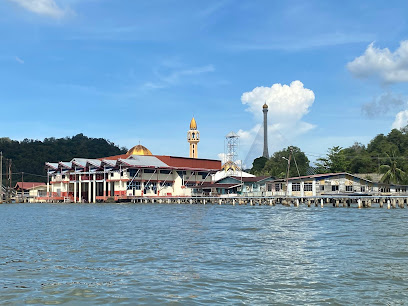
Water Village Gallery
Explore the rich tapestry of Aboriginal art at Water Village Gallery, a cultural gem in the heart of Kampong Ayer's floating village.
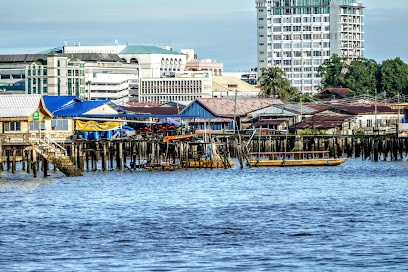
Kampong Ayer Museum
Discover the history and culture of Kampong Ayer, the 'Venice of the East,' at this informative museum.
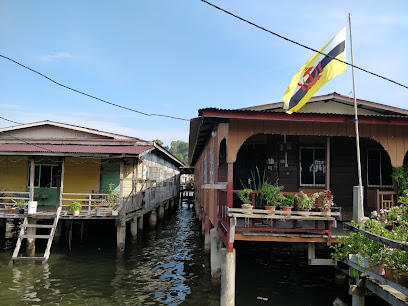
The Big Wall Brunei
Experience the grandeur of The Big Wall Brunei, a breathtaking tourist attraction that showcases the beauty and culture of Brunei.
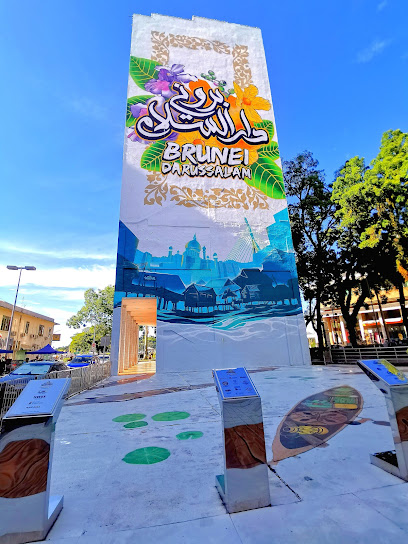
Kampung Ayer Visitor Center
Discover Brunei's floating heart: Explore the history and culture of Kampong Ayer at the Visitor Center.
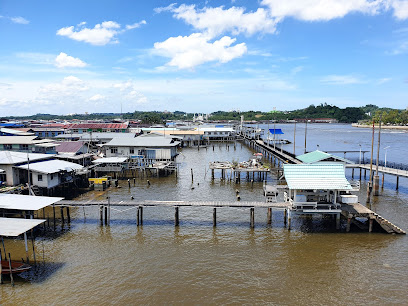
Kampong Ayer
Explore Kampong Ayer, the 'Venice of the East,' a historic water village offering a unique glimpse into Brunei's rich cultural heritage and traditional lifestyle.
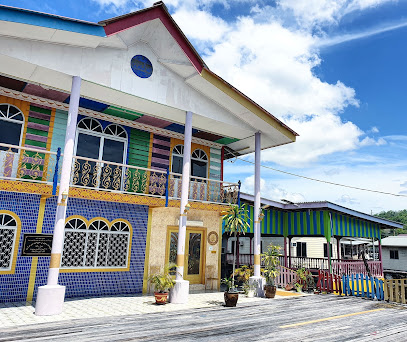
Tugu Air Pancur PGGMB
Discover Tugu Air Pancur PGGMB, a tranquil tourist attraction in Bandar Seri Begawan, showcasing Brunei's cultural essence through its stunning water fountain.
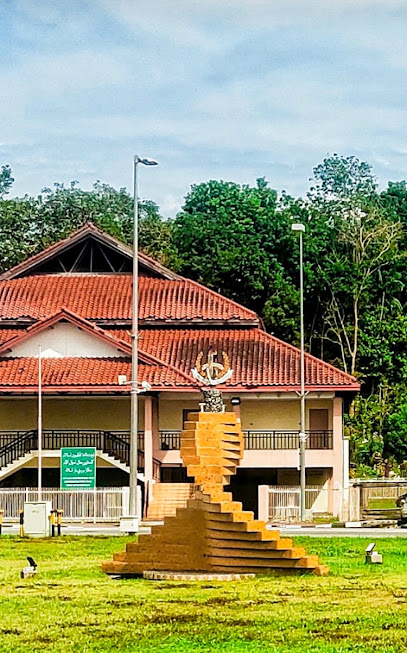
Unmissable attractions to see
Royal Regalia Museum
Discover Brunei's royal heritage at the Royal Regalia Museum, showcasing the Sultan's treasures and the nation's rich history.
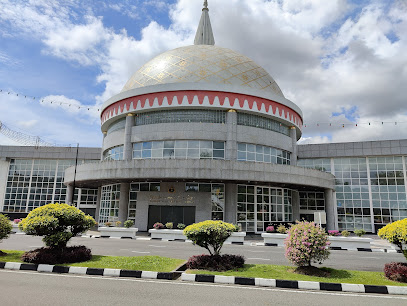
Damuan Recreational Park
Escape to nature in the heart of Brunei's capital. Serene park with lush greenery, walking trails, and ASEAN sculptures.
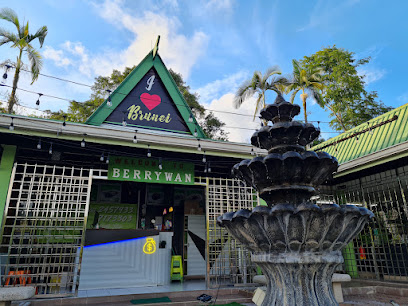
Kampong Ayer Cultural & Tourism Gallery
Explore the history and culture of Kampong Ayer, the 'Venice of the East,' at this informative and engaging gallery.
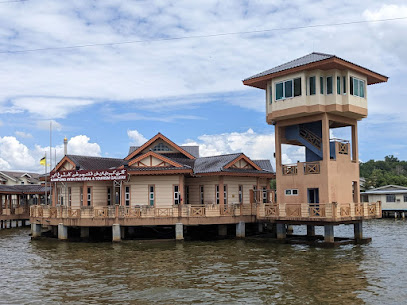
Water Village Settlement (Kampong Ayer)
Explore Kampong Ayer, the world's largest water village, a historic gem offering a unique glimpse into Brunei's rich cultural heritage.
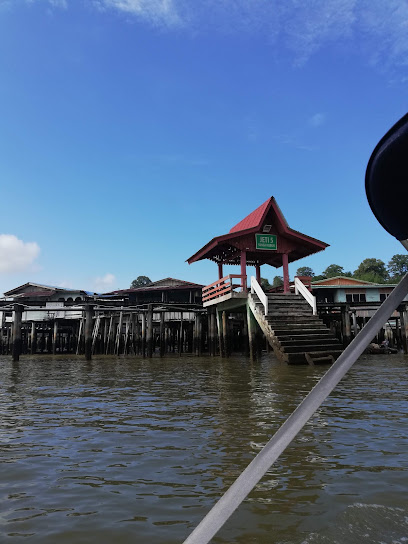
Water Village Gallery
Discover Brunei's Aboriginal art and heritage at the Water Village Gallery in Kampong Ayer, a unique cultural experience on the water.
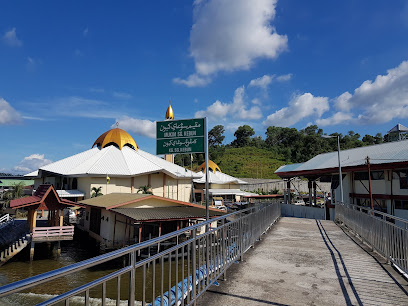
Kampong Ayer Museum
Discover the history and culture of Kampong Ayer, the 'Venice of the East,' at this informative museum.
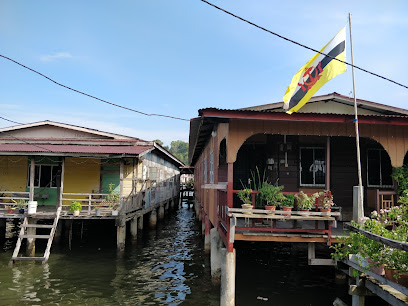
Pulau Piasau
Explore the serene beauty of Pulau Piasau, a captivating tourist attraction in Kampong Ayer, perfect for nature lovers and cultural enthusiasts alike.
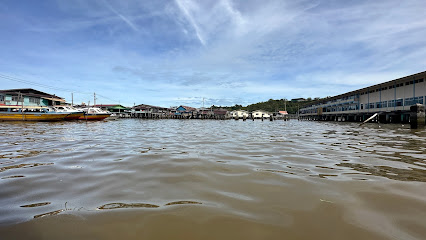
Kampong Ayer
Discover Kampong Ayer, Brunei's historic 'Venice of the East': A vibrant stilt village offering a unique glimpse into Brunei's rich cultural heritage.
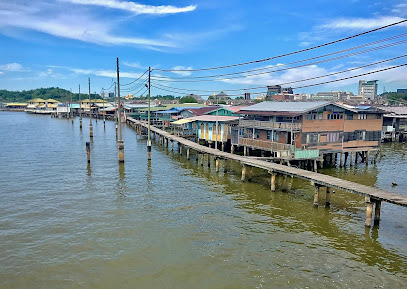
Essential places to dine
London Cafe & Restaurant
Experience the best Western cuisine in Bandar Seri Begawan at London Cafe & Restaurant – where flavor meets comfort in every dish.
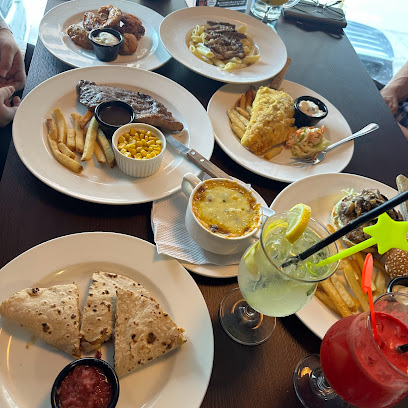
Adresto
Experience the exquisite blend of local flavors and contemporary cuisine at Adresto in Bandar Seri Begawan.
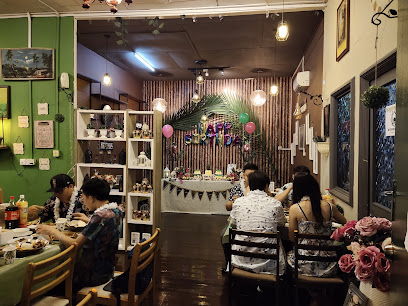
Gerai Nini Mama
Experience authentic Bruneian flavors at Gerai Nini Mama - a cozy restaurant and café in Bandar Seri Begawan.
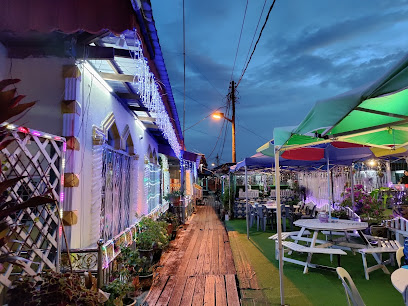
SDK Sungai Kebun
Experience authentic Bruneian cuisine at SDK Sungai Kebun in Bandar Seri Begawan - where traditional flavors meet modern dining.
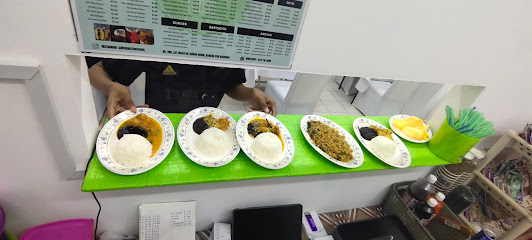
Ayamku Restaurant
Discover the authentic taste of Bruneian cuisine at Ayamku Restaurant - where every dish tells a story.
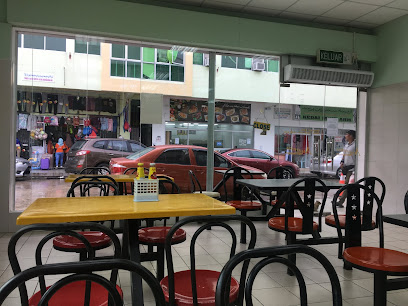
Scr Alinah Restaurant
Experience authentic Bruneian flavors at Scr Alinah Restaurant, a family-friendly gem in Bandar Seri Begawan.
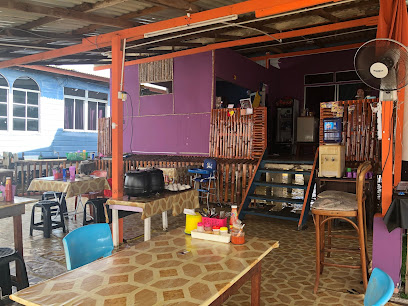
Restaurant Membawang
Discover the authentic tastes of Brunei at Restaurant Membawang – where local flavors meet warm hospitality.
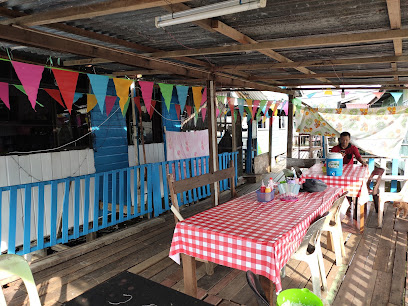
A.B.S Restaurant
Discover authentic Bruneian flavors at A.B.S Restaurant in Bandar Seri Begawan – where every dish tells a story.
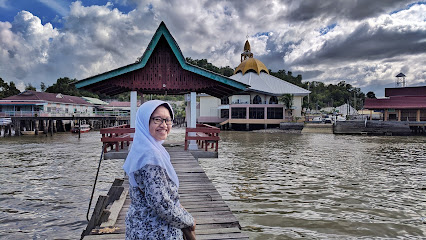
UmiFatimah Restaurant
Discover UmiFatimah Restaurant: An Authentic Culinary Experience in Kampong Ayer's Water Village.

The Eateries
Explore the vibrant flavors of Brunei at The Eateries - a culinary haven in Bandar Seri Begawan offering diverse local and international cuisines.

Markets, malls and hidden boutiques
Happy Star Brunei Souvenir Shop
Discover unique treasures at Happy Star Brunei Souvenir Shop, your go-to destination for authentic Brunei crafts and souvenirs in Bandar Seri Begawan.
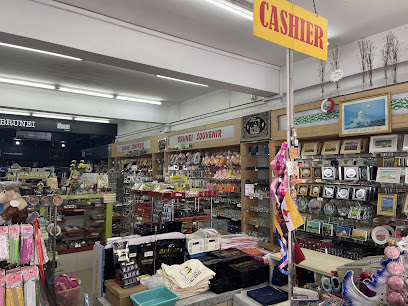
BWN Souvenirs Store
Discover authentic Bruneian souvenirs at BWN Souvenirs Store, where culture and craftsmanship come together in the heart of Bandar Seri Begawan.
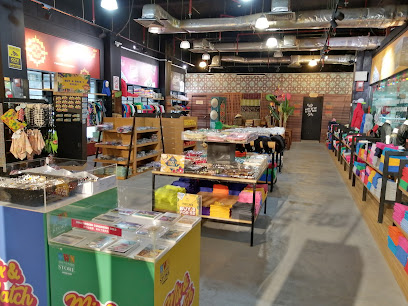
Euro Classic Collection
Explore a unique mix of local gifts and European-style decor at the Euro Classic Collection in Bandar Seri Begawan.
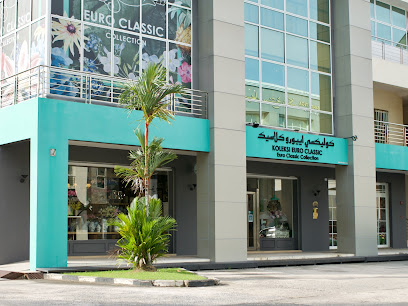
InstockBN Enterprise
Explore unique gifts and souvenirs at InstockBN Enterprise, capturing the essence of Brunei's rich culture in every item.
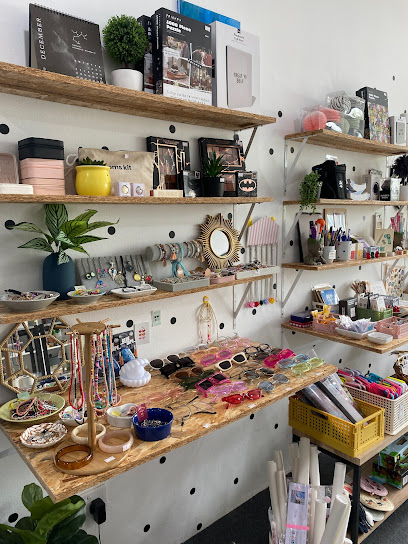
Gift Thing
Explore Gift Thing, where local craftsmanship meets unique gifting options, perfect for souvenirs and treasures from your travels.

bestowalshop.bn
Explore Bestowalshop.bn for unique gifts and local handicrafts that capture the essence of your travels and make cherished memories.
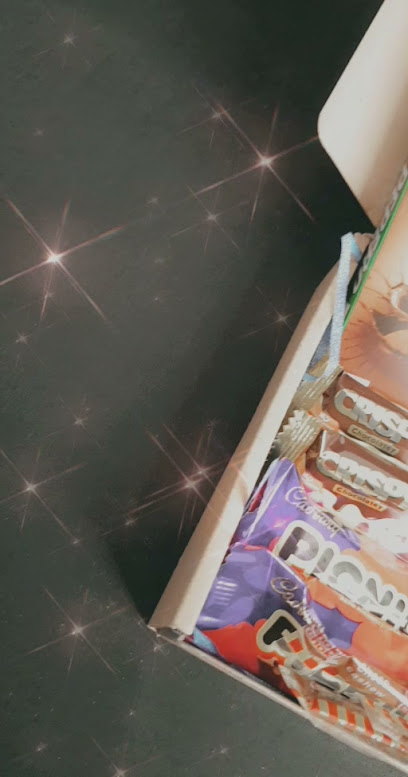
Wardrobe Collection Brunei
Discover unique fashion pieces that blend contemporary style with Bruneian craftsmanship at Wardrobe Collection Brunei.
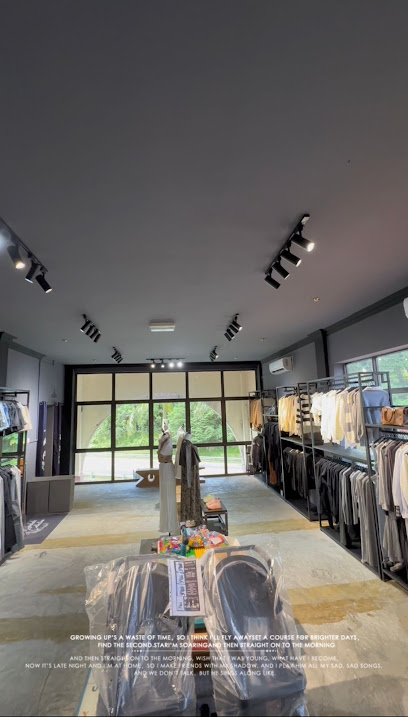
Evergreen & Co
Explore unique treasures at Evergreen & Co, a charming smart shop offering a delightful shopping experience for every traveler.

NM Store Collection
Explore NM Store Collection, a gem of a jewelry store offering exquisite designs and exceptional service for a memorable shopping experience.

Aqeef Store
Discover Aqeef Store for unique clothing and accessories that blend traditional and modern styles, perfect for every fashion enthusiast.

Essential bars & hidden hideouts
Jazz Bar And Grill
Jazz Bar And Grill in Kiulap offers a harmonious blend of Western cuisine and live jazz music for an unforgettable dining experience.
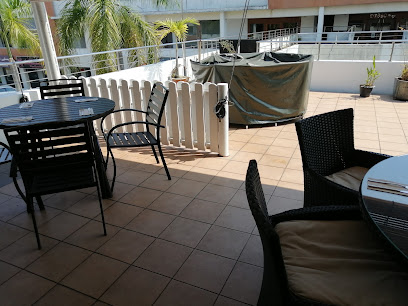
Kampong Ayer Cultural & Tourism Gallery
Discover the fascinating history and vibrant culture of Kampong Ayer at the Cultural & Tourism Gallery, a unique insight into Brunei's water village life.
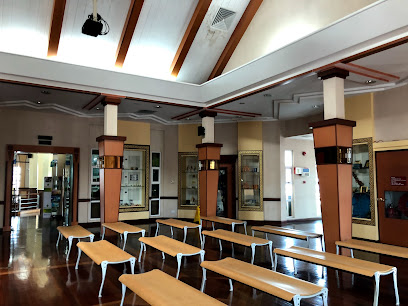
Water Village Settlement (Kampong Ayer)
Experience the charm of Kampong Ayer, Brunei's stunning Water Village, where tradition meets tranquility on the water.
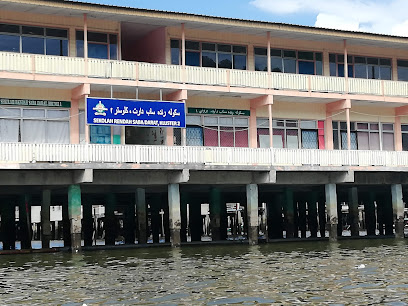
Adresto
Experience authentic Bruneian cuisine at Adresto, a beloved restaurant in Bandar Seri Begawan known for its traditional dishes and inviting atmosphere.
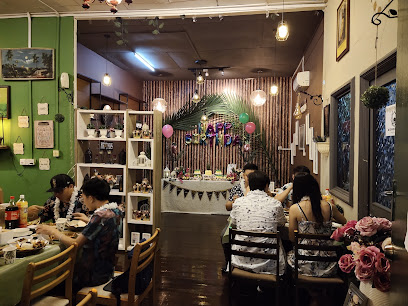
HUNGRY BAR & BISTRO
Discover a culinary oasis at Hungry Bar & Bistro in Bandar Seri Begawan, where local flavors meet international delights in a cozy atmosphere.
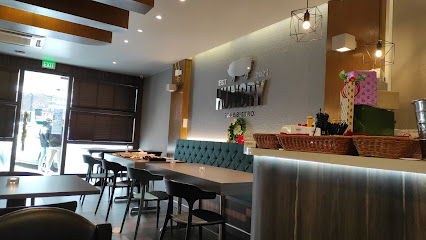
Gerai Nini Mama
Experience authentic Bruneian culinary delights at Gerai Nini Mama, a cozy restaurant and cafe in the heart of Bandar Seri Begawan.
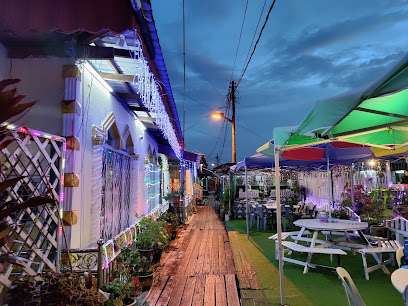
Kampong Ayer
Discover the unique charm of Kampong Ayer, a historic floating village in Brunei, showcasing traditional stilt houses and vibrant local life.
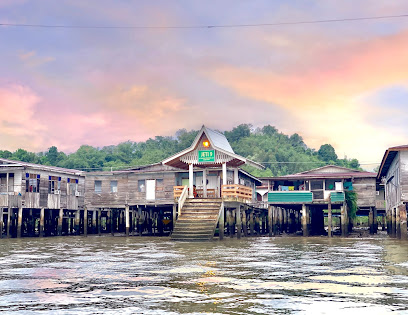
Scr Alinah Restaurant
Experience the flavors of Brunei at Scr Alinah Restaurant, a family-friendly dining haven with delightful local and international cuisine in Bandar Seri Begawan.
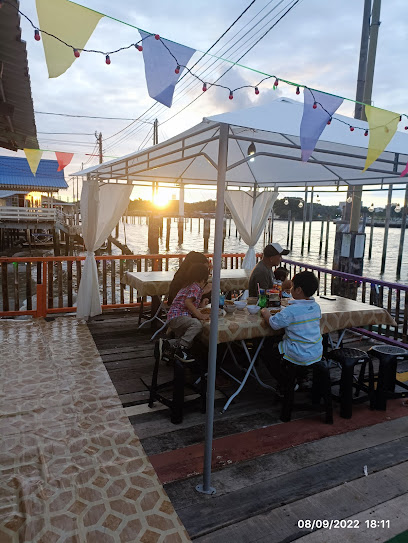
A.B.S Restaurant
Discover the flavors of Brunei at A.B.S Restaurant in Bandar Seri Begawan, where local cuisine meets warm hospitality.
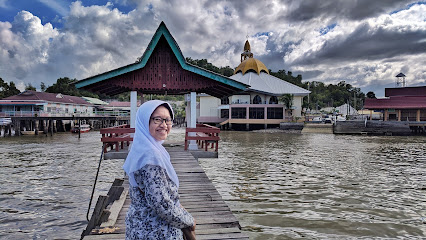
Restaurant Membawang
Experience the authentic flavors of Brunei with a culinary journey at Restaurant Membawang in Bandar Seri Begawan.
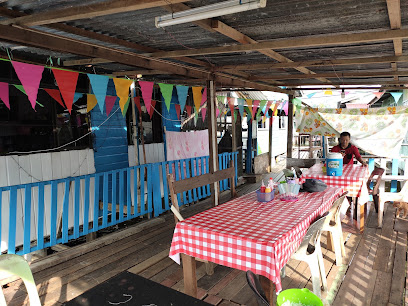
Local Phrases
-
- HelloSelamat pagi
[Suh-lah-maht pah-gee] - GoodbyeSelamat tinggal
[Suh-lah-maht ting-gahl] - YesYa
[Yah] - NoTidak
[Tee-dahk] - Please/You're welcomeSila
[See-lah] - Thank youTerima kasih
[Teh-ree-mah kah-seeh] - Excuse me/SorryMaafkan saya
[Mah-ahf-kahn sah-yah] - How are you?Apa khabar?
[Ah-pah kah-bahr] - Fine. And you?Baik. Dan awda?
[Bah-eek. Dahn ow-dah] - Do you speak English?Boleh cakap Inggeris?
[Boh-leh chah-kahp Ing-gehr-ees] - I don't understandSaya tidak faham
[Sah-yah tee-dahk fah-hahm]
- HelloSelamat pagi
-
- I'd like to see the menu, pleaseBisa lihat menu, tolong
[Bee-sah lee-haht meh-noo, toh-lohng] - I don't eat meatSaya tidak makan daging
[Sah-yah tee-dahk mah-kahn dah-yahng] - Cheers!Selamat minum
[Suh-lah-maht mee-noom] - I would like to pay, pleaseSaya ingin bayar, tolong
[Sah-yah een-geen bah-yahr, toh-lohng]
- I'd like to see the menu, pleaseBisa lihat menu, tolong
-
- Help!Tolong!
[Toh-lohng!] - Go away!Pergi jauh!
[Pehr-gee jah-oo!] - Call the Police!Panggil polis!
[Pahng-geel poh-lees!] - Call a doctor!Panggil doktor!
[Pahng-geel dohk-tohr!] - I'm lostSaya tersesat
[Sah-yah tehr-seh-saht] - I'm illSaya sakit
[Sah-yah sah-keet]
- Help!Tolong!
-
- I'd like to buy...Saya ingin membeli...
[Sah-yah een-geen mehm-beh-lee] - I'm just lookingSaya hanya melihat
[Sah-yah hahn-yah meh-lee-haht] - How much is it?Berapa harganya?
[Beh-rah-pah hahr-gahn-yah] - That's too expensiveItu terlalu mahal
[Ee-too teh-rah-lah mah-hahl] - Can you lower the price?Boleh kurangkan harga?
[Boh-leh koor-ahn-gahn hahr-gah]
- I'd like to buy...Saya ingin membeli...
-
- What time is it?Pukul berapa sekarang?
[Poo-kool beh-rah-pah suh-kah-rahn?] - It's one o'clockPukul satu
[Poo-kool sah-too] - Half past (10)Setengah (sepuluh)
[Seh-tehn-gah (suh-poo-looh)] - MorningPagi
[Pah-gee] - AfternoonPetang
[Peh-tahng] - EveningMalam
[Mah-lahm] - YesterdaySemalam
[Seh-mah-lahm] - TodayHari ini
[Hah-ree ee-nee] - TomorrowEsok
[Eh-sohk] - 1Satu
[Sah-too] - 2Dua
[Doo-ah] - 3Tiga
[Tee-gah] - 4Empat
[Em-paht] - 5Lima
[Lee-mah] - 6Enam
[Eh-nahm] - 7Tujuh
[Too-joo] - 8Lapan
[Lah-pahn] - 9Sembilan
[Suhm-bee-lahn] - 10Sepuluh
[Suh-poo-looh]
- What time is it?Pukul berapa sekarang?
-
- Where's a/the...?Di mana...
[Dee mah-nah...] - What's the address?Apa alamatnya?
[Ah-pah ah-lah-maht-n-yah?] - Can you show me (on the map)?Boleh tunjukkan saya (di peta)?
[Boh-leh toon-jook-kahn sah-yah (dee peh-tah)?] - When's the next (bus)?Bila bas seterusnya?
[Bee-lah bahs suh-tuh-roos-yah?] - A ticket (to ....)Sebuah tiket (ke ....)
[Suh-boo-ah tee-keht (keh ....)]
- Where's a/the...?Di mana...
History of Kampong Ayer
-
Kampong Ayer, known as the 'Venice of the East', has its origins rooted in the 10th century when the first Malay settlers established stilt houses along the Brunei River. The strategic location provided a natural defense against invaders and facilitated trade and transportation, enhancing its significance as a hub of commerce in the region.
-
Throughout its history, Kampong Ayer has been a melting pot of various cultures, including Malay, Chinese, and Indian influences. The diverse communities contributed to the rich tapestry of local traditions, languages, and culinary practices, making Kampong Ayer a vibrant cultural landscape reflective of Brunei's historical interactions with neighboring regions.
-
Kampong Ayer has long served as the residence for Brunei's royal family. The sultanate's historical ties to the area are evident in the architecture of traditional houses, many of which are adorned with intricate wood carvings. The presence of the royal family in the neighborhood has solidified its status as an important cultural and political center for Brunei.
-
During World War II, Kampong Ayer, like much of Brunei, experienced the harsh realities of Japanese occupation from 1941 to 1945. The area faced significant changes as the Japanese imposed their authority, affecting local livelihoods and disrupting traditional trade routes. This period left lasting scars on the community, but it also showcased the resilience of the residents.
-
In recent decades, efforts have been made to modernize Kampong Ayer while preserving its cultural heritage. The Brunei government has invested in infrastructure improvements, including the construction of walkways and public facilities, to enhance accessibility for visitors. These initiatives aim to strike a balance between development and the preservation of this unique stilt village, ensuring its legacy for future generations.
Kampong Ayer Essentials
-
Kampong Ayer is easily accessible from various parts of Bandar Seri Begawan. You can take a water taxi (known locally as a 'perahu') from the main jetty located near the capital's waterfront. The journey is short and usually takes around 10-15 minutes. Alternatively, you can walk to the jetty from your hotel if you are staying in the city center.
-
In Kampong Ayer, the primary mode of transportation is by water taxi, which can take you to different stilt houses and attractions. There are no trains or buses in the area, but the water taxis are frequent and relatively inexpensive. Walking is also a great way to explore the wooden walkways that connect various houses and shops.
-
Kampong Ayer is generally safe for tourists, but like in any area, it's wise to remain vigilant. Avoid venturing into less populated areas at night. Petty crime such as pickpocketing can occur in crowded places, so keep your belongings secure. There are no specific high-crime zones, but always exercise caution.
-
In case of an emergency, dial 993 for the police or 991 for medical assistance. Local hospitals and clinics are available in Bandar Seri Begawan, and it's advisable to have travel insurance that covers healthcare. For minor concerns, there are small pharmacies in the area.
-
Fashion: Do dress modestly, particularly when visiting religious sites. Don’t wear revealing clothing. Religion: Do respect local customs and traditions. It’s advisable to cover your head when entering mosques. Public Transport: Do be polite and thank your water taxi driver. Don’t consume food or drink in the taxis. Greetings: Do greet with a smile and a polite 'Salam'. Don’t engage in overly familiar physical contact. Eating & Drinking: Do try local dishes like ambuyat and accept food offerings graciously. Don’t waste food, as it is considered disrespectful.
-
To experience Kampong Ayer like a local, consider visiting during the evening when families gather outside their homes. Engage with the locals, who are often friendly and willing to share stories about their unique culture. Don’t miss the chance to sample street food from vendors along the walkways, and try to visit some of the cultural centers for a deeper understanding of the heritage.
Nearby Cities to Kampong Ayer
-
Things To Do in Jerudong
-
Things To Do in Muara
-
Things To Do in Bangar
-
Things To Do in Tutong
-
Things To Do in Seria
-
Things To Do in Kuala Belait
-
Things To Do in Miri
-
Things To Do in Kota Kinabalu
-
Things To Do in Sandakan
-
Things To Do in Kuching
-
Things To Do in Palawan
-
Things To Do in Puerto Princesa
-
Things To Do in Balikpapan
-
Things To Do in Zamboanga City
-
Things To Do in Mui Ne








